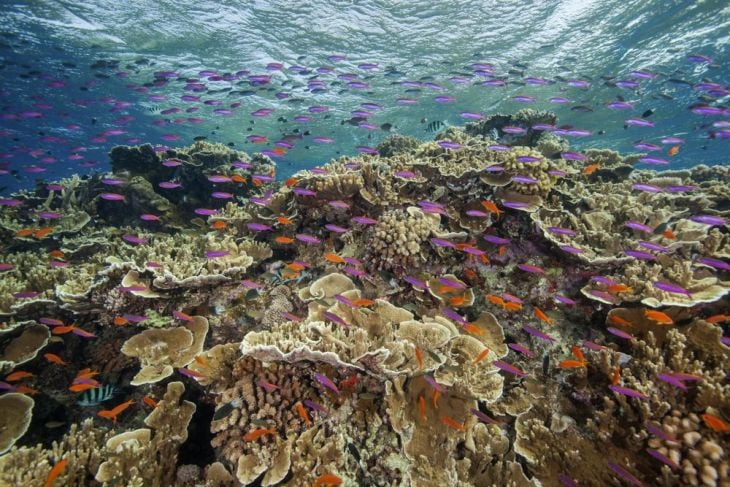Afp
03/18/2022 | Sydney, Australia
–
The Great Barrier Reef suffers a new episode of “widespread” bleaching due to high temperatures in the waters of northeastern Australia that threaten this World Heritage Site, authorities said on Friday.
“Bleaching has been detected throughout the Marine Park. It is widespread but variable, across multiple regions, ranging from minor to severe impact,” the Great Barrier Reef Marine Park Authority said.
Throughout the past week, temperatures in that area were between 0.5 and 2 ºC above the median. In some areas further north or near the coast, temperatures were 2 to 4 degrees higher than usual.
“The most severely impacted reefs are near the Townsville region. There have also been reports of early mortality where thermal stress has been greatest,” he noted.
The news comes ahead of a trip by the United Nations Educational, Scientific and Cultural Organization (Unesco) to the reef to inspect the health of the 2,300-kilometer-long ecosystem, after threatening months ago to classify it as heritage. in danger.
Lee: Australia approves fund for the protection of the Great Barrier Reef
The bleaching phenomena occur due to the thermal stress of the corals due to the increase in temperatures, which leads them to expel the algae that live in their tissues and give them their bright colors.
Since 1997 there have been five such episodes.
In addition, the Great Barrier Reef has been hit by extreme cyclones and by outbreaks of purple acanthaster starfish, which eat coral.
Although these changes are not yet classified as a mass bleaching phenomenon, the Australian Marine Conservation Society called them “disastrous news”.
“It shows the consistent pressure our reef is under with global warming,” said his campaign manager, Lissa Schindler.
“A healthy reef can recover from coral bleaching, but it takes time. More frequent heat waves … mean it doesn’t have this time,” he added.
The Australian Conservative government earlier this year announced a $700 million program to protect the Great Barrier Reef from being removed from the UNESCO World Heritage list.
But at the same time, the executive is accused by environmental associations of not acting with enough conviction to reduce greenhouse gas emissions in the country, one of the world’s largest exporters of gas and coal.
Keep reading: One of the largest coral reefs in the world found in Tahiti
Edition: Estefania Cardeña
–


![Is it worth buying currencies now? After the zloty made up for losses, the currencies became more expensive again: the Swiss franc PLN 4.58 and the euro PLN 4.70 [19.03.2022] Is it worth buying currencies now? After the zloty made up for losses, the currencies became more expensive again: the Swiss franc PLN 4.58 and the euro PLN 4.70 [19.03.2022]](https://d-art.ppstatic.pl/kadry/k/r/1/c3/7f/622efe9503363_o_original.jpg)